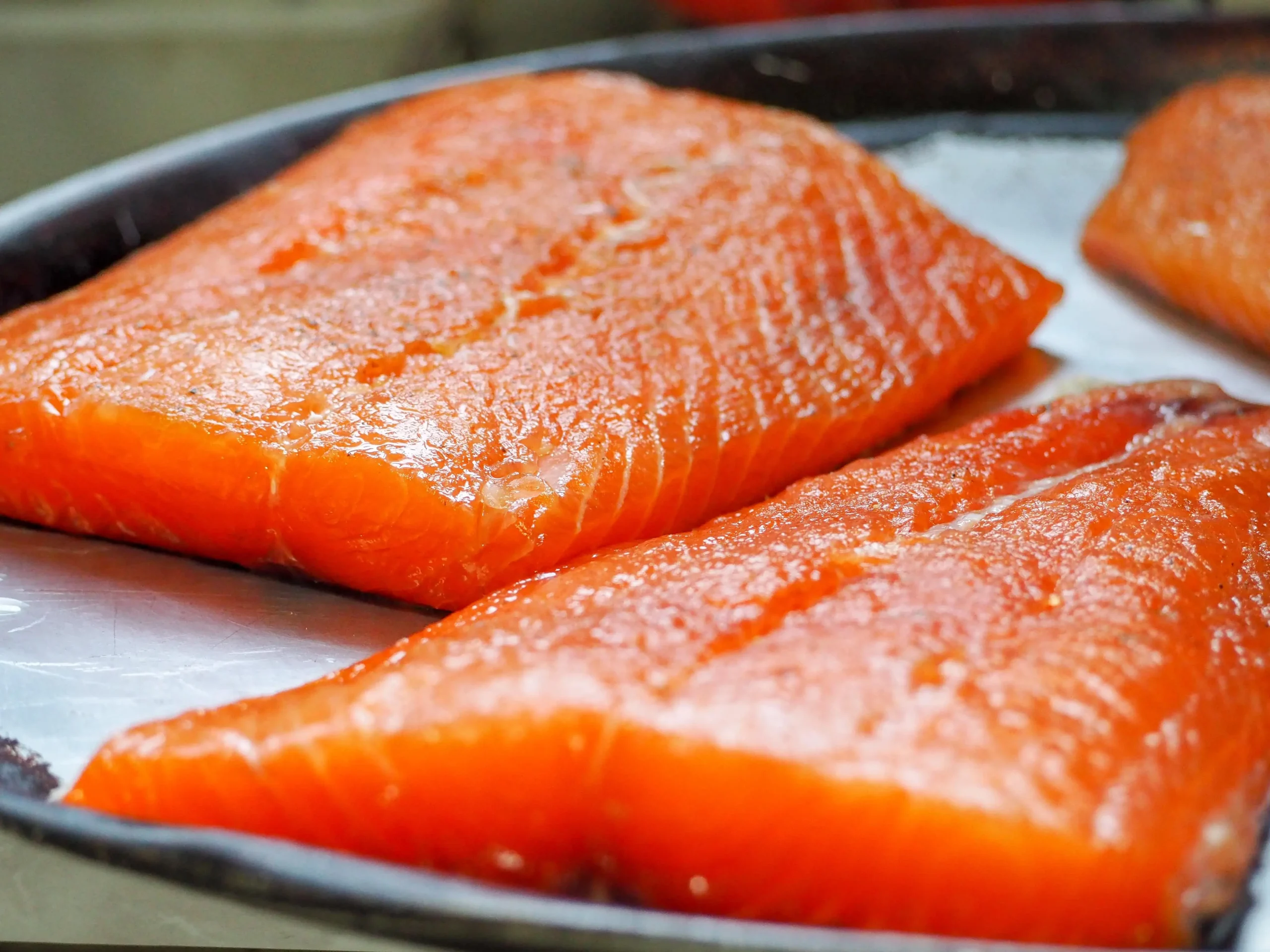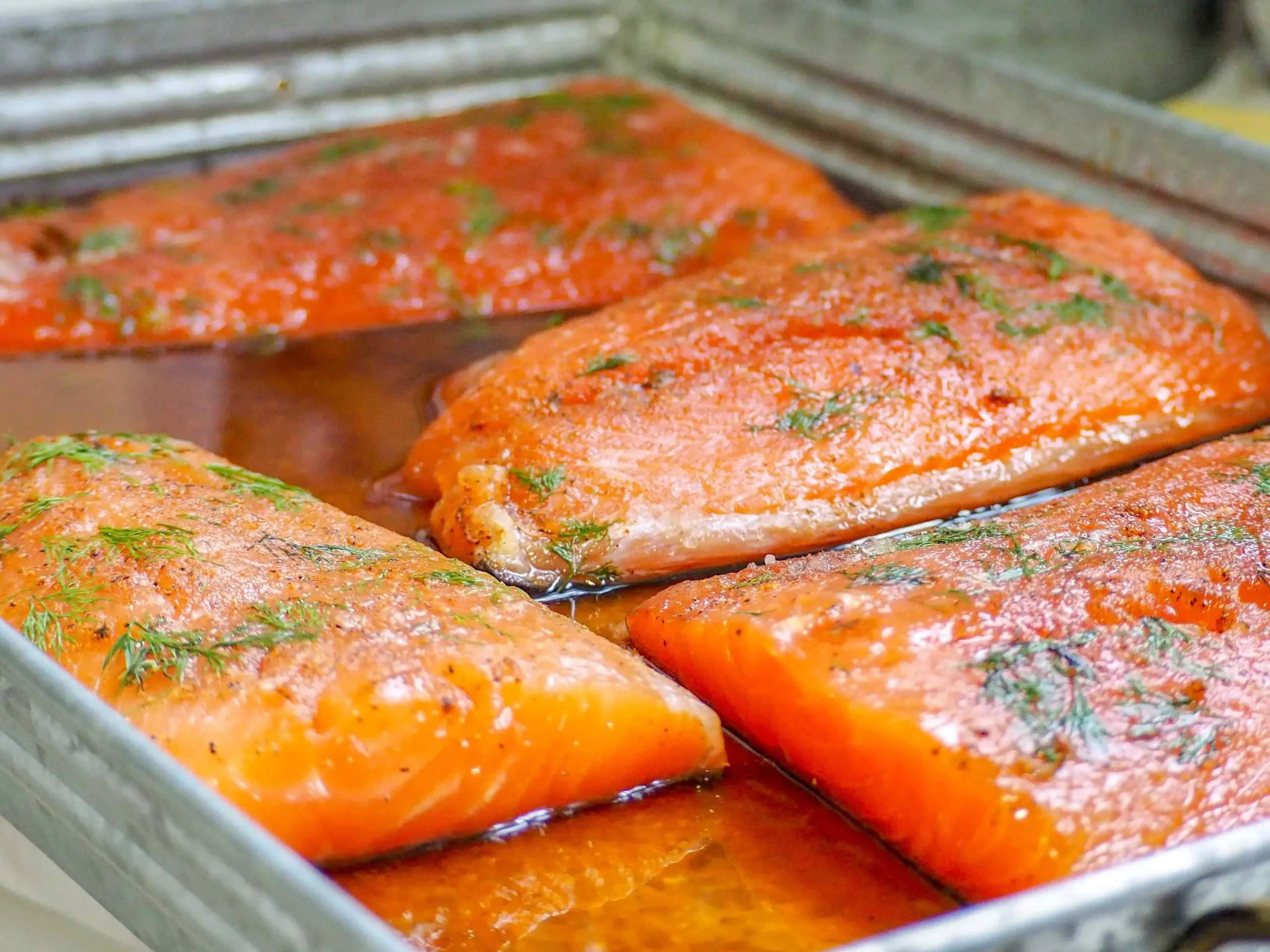Many home cooks and smoking enthusiasts have encountered the issue of their smoked salmon turning out too salty. This can be disappointing, as the overpowering saltiness can mask the delicate flavors of the fish. If you've been struggling with this problem, don't worry - there are ways to make your smoked salmon less salty. In this article, we will explore different methods to achieve low salt smoked salmon without compromising on taste.
Understanding the Salt Cure
The first step to addressing the saltiness issue is to understand the curing process. Curing is a traditional method of preserving fish by using a mixture of salt and sugar. The salt draws out moisture from the fish, while the sugar adds sweetness and balances the flavors. However, when the ratio of salt to sugar is not properly balanced, or the curing time is too long, the salmon can become excessively salty.
Adjusting the Cure Recipe
If your smoked salmon consistently turns out too salty, it may be necessary to adjust your cure recipe. Consider reducing the amount of salt and increasing the proportion of sugar. A good starting point is to use a ratio of 1 part salt, 2 parts brown sugar, and 1 part granulated white sugar. This will help to counteract the saltiness and enhance the natural flavors of the fish.
Tip: Experiment with different ratios to find the perfect balance that suits your taste preferences. Keep a record of each variation, noting the curing time and the resulting saltiness level for future reference.
Rinsing and Soaking Techniques
Rinsing the salmon after the curing process is another effective method to reduce saltiness. After removing the salmon from the cure mixture, rinse it thoroughly under cold running water. This helps to wash away excess salt on the surface of the fish. Pat dry the salmon gently with paper towels to remove any excess moisture.
Alternatively, some smokers prefer to soak the salmon in water after rinsing. This can further reduce the saltiness by allowing the fish to absorb fresh water and dilute the salt content. Soaking times can vary depending on personal preference, but a good starting point is to soak the salmon for 30 minutes. If the fish is still too salty, increase the soaking time gradually, up to a maximum of 6 hours.
Tip: Discard the soaking water as it will contain some salt content. This step helps to prevent the reabsorption of salt into the fish.
Controlling Curing Time
The curing time plays a crucial role in determining the saltiness of the smoked salmon. If you find that your salmon consistently turns out too salty, it may be necessary to reduce the curing time. Shortening the duration of the curing process will limit the opportunity for the salt to penetrate the fish.
Tip: Start by reducing the curing time by half, and observe the results. If the salmon is still too salty, continue to decrease the curing time gradually until you achieve the desired level of saltiness.
Enhancing Flavor with Seasonings
While reducing saltiness is the primary goal, it's important not to sacrifice flavor. To enhance the taste of your low salt smoked salmon, consider adding additional seasonings and spices to the cure mixture. This can help to bring out the natural flavors of the fish and create a more well-rounded taste profile.
Tip: Experiment with different seasonings such as dill, lemon zest, black pepper, or garlic powder. Be sure to adjust the amounts accordingly to maintain the desired balance of flavors.
- Q: Can I use alternative salts for curing?
- Q: How long can I store smoked salmon?
- Q: Can I freeze smoked salmon?
A: Absolutely! While traditional canning salt is commonly used for curing, you can experiment with alternative salts such as sea salt or kosher salt. Just remember to adjust the quantities accordingly, as different salts have varying levels of saltiness.

A: Properly stored smoked salmon can last for up to two weeks in the refrigerator. Be sure to wrap it tightly in plastic wrap or store it in an airtight container to maintain its freshness.
A: Yes, smoked salmon can be frozen for extended storage. Wrap it tightly in plastic wrap and place it in a freezer bag or airtight container. It can be stored in the freezer for up to three months.
In Summary
Low salt smoked salmon is achievable with a few adjustments to the curing process. By reducing the salt content in the cure mixture, rinsing and soaking the salmon, controlling the curing time, and enhancing the flavors with seasonings, you can enjoy a delicious and less salty smoked salmon. Remember to experiment and find the perfect balance that suits your taste preferences. Happy smoking!
If you want to know other articles similar to Reducing saltiness: a guide to low salt smoked salmon you can visit the Smoking category.


Related Articles